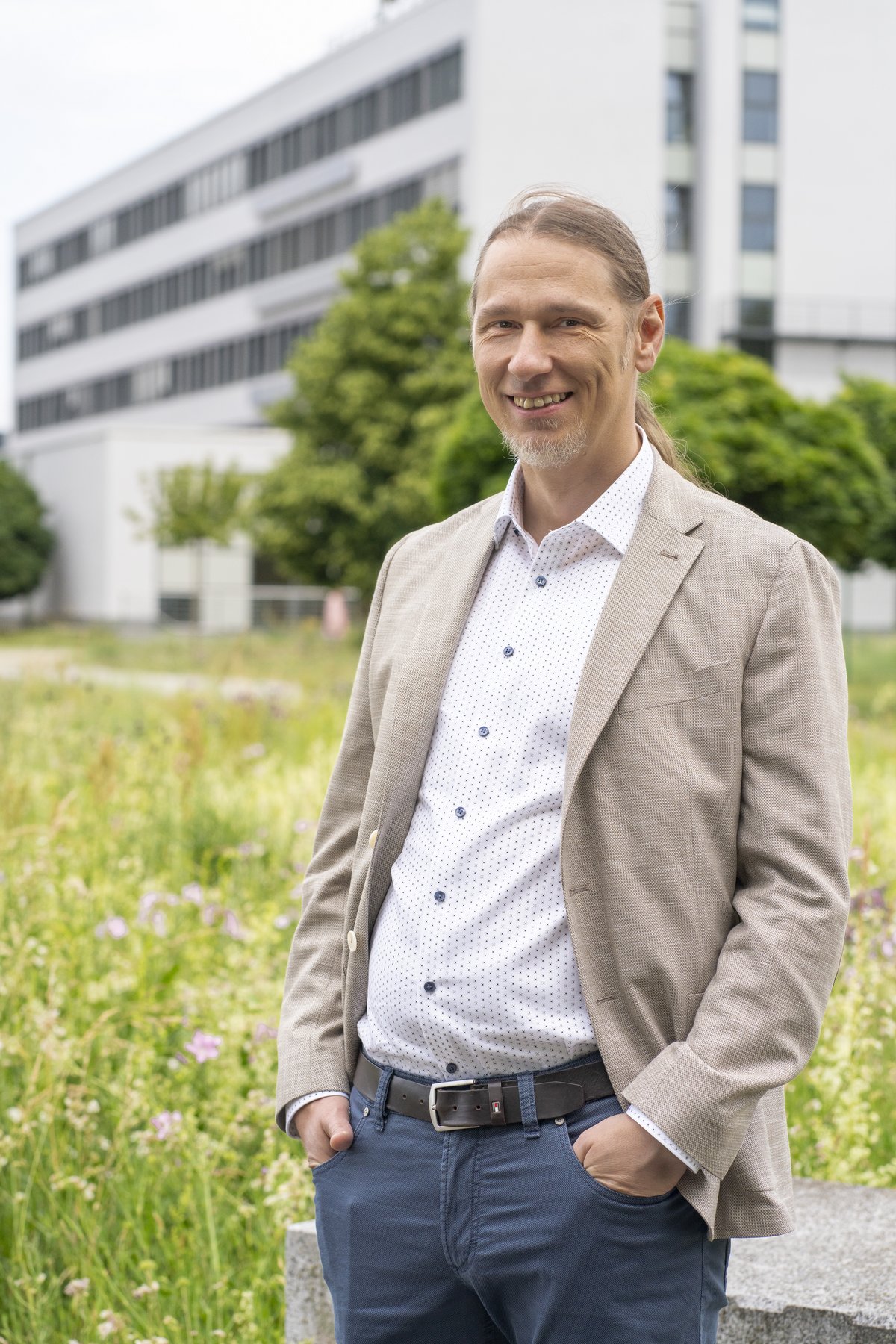BTU introduces: Prof. Dr Moritz Schmidt, Professor of Coordination Chemistry
Prof. Dr Moritz Schmidt is delighted that his appointment has now been completed. His professorship for coordination chemistry with a focus on radionuclides is a joint appointment with the Helmholtz-Zentrum Dresden-Rossendorf (HZDR), which was made across state borders. Schmidt: "The HZDR is in Saxony, the BTU in Brandenburg."
Prof. Schmidt has been working at the Institute of Resource Ecology at the HZDR since 2013 and has headed the Chemistry of f-Elements department there since 2018, and will continue to do so. While teaching takes place at Campus Senftenberg, he will continue his research in Dresden. With a team of 14 employees, he is researching the chemistry of the so-called actinides, the best-known representatives of which are uranium and plutonium. Schmidt: "We know comparatively little about these elements - especially those that do not occur naturally, such as plutonium, which is produced in nuclear reactors - precisely the elements that can become problematic."
Basic research with great social relevance
Schmidt's research is highly topical. It plays a key role in understanding the final disposal of radioactive waste. Plutonium, for example, has a half-life of around 24,000 years - legislation stipulates a storage period of one million years. Schmidt: "These time periods are beyond human comprehension. So if I want to make predictions about the safe final disposal of nuclear waste, I need to understand exactly how the elements behave chemically, how they react with the rocks or molecules in the environment."
Schmidt is now looking forward to teaching at BTU. He is planning two lectures for the 2026 summer semester: Coordination Chemistry and Radiochemistry. With his commitment, he hopes not only to give students a basic understanding of these two areas, but also to ignite a passion for radiochemical issues in them and get them excited about research. They would then have the opportunity to conduct research at the HZDR in Dresden as part of their final theses or doctoral studies. According to Schmidt, this would be appealing: "Not everyone can claim to have held plutonium in their hands."
Plans for the future: teaching, project proposals and collaborations
Prof. Schmidt has clear goals for the future, which can be divided into three stages. Firstly, the focus is on developing teaching. Prof. Schmidt then wants to initiate research projects at BTU and acquire third-party funding, for example via the German Research Foundation (DFG). In the long term, he plans to develop larger research projects together with colleagues at BTU.
You can find out more about Prof. Moritz Schmidt and his key research areas here.
Contact us
Koordinationschemie mit Schwerpunkt Radionuklide
schmidmo(at)b-tu.de
Press contact
Kommunikation und Marketing
T +49 (0) 355 69-3837
britta.radkowsky(at)b-tu.de

